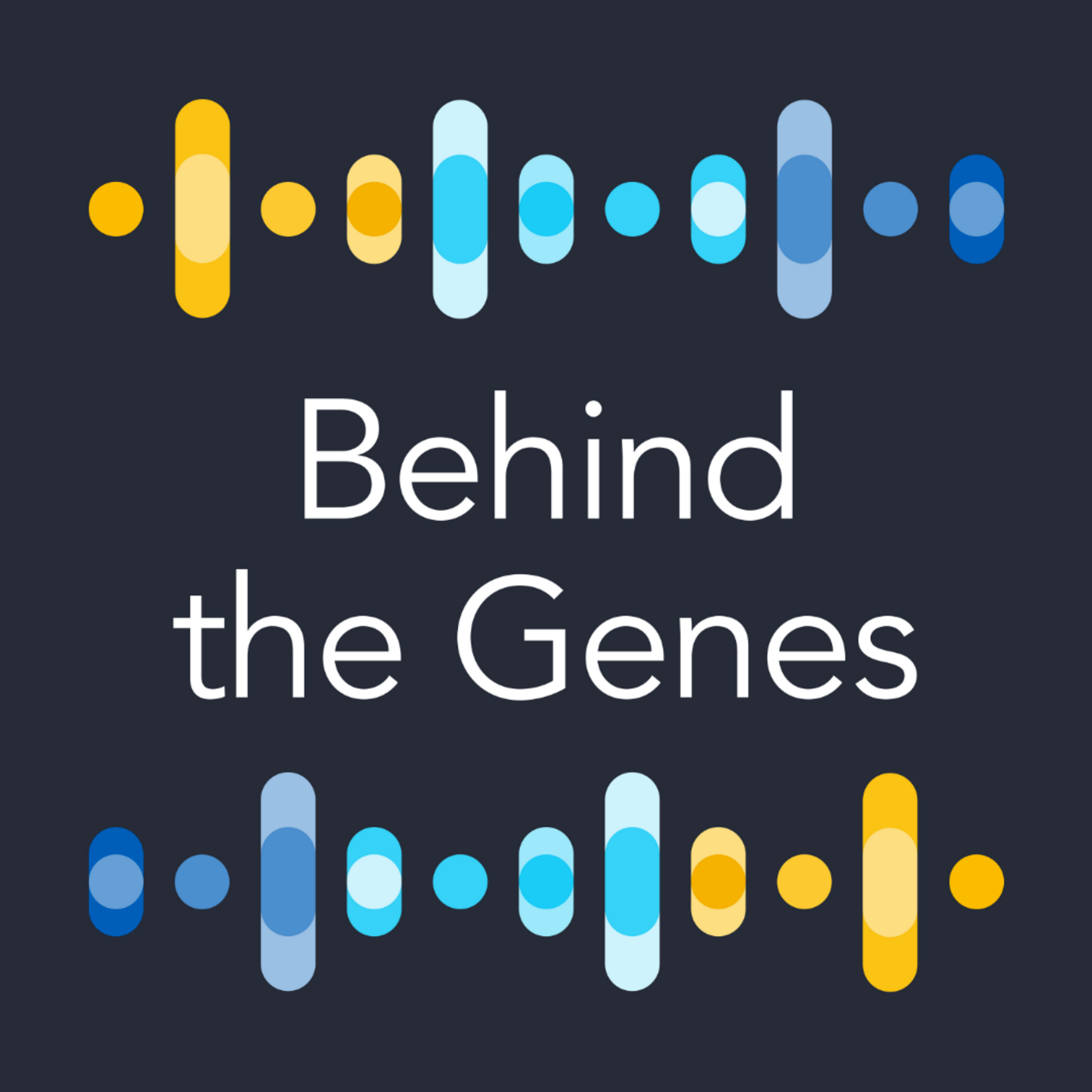James Duboff: Genomics 101 - How do pharmaceutical companies use genomic data for drug discovery?
Description
In this explainer episode, we’ve asked James Duboff, Strategic Partnerships Director at Genomics England, to explain how genomic data can be used in drug discovery.
You can also find a series of short videos explaining some of the common terms you might encounter about genomics on our YouTube channel.
If you’ve got any questions, or have any other topics you’d like us to explain, feel free to contact us on [email protected].
You can read the transcript below or download it here: https://files.genomicsengland.co.uk/documents/Podcast-transcripts/How-do-pharmaceutical-companies-use-genomic-data-for-drug-discovery.docx
Naimah: How do pharmaceutical companies use genomic data for drug discovery? Today, I’m joined by James Duboff, a Strategic Partnerships Director here at Genomics England, to find out more.
So James, first of all, what is genomic data, and how does this relate to our genes?
James: Let’s start with a simple explanation of what we mean by genomic data and our genes. So, every cell in our body contains a complete copy of our genome. Now, genome is kind of a mini instruction manual that describes exactly how to make you. Now, those instructions are written in a language called DNA, which is over 99 percent identical in every single human on the planet, so you and I are actually genomically very, very similar. The differences, however, are called variants, and they’re what make us unique. Now, some of those variants can actually be very dangerous, and they can code for things like rare genetic diseases or even cancer. So, we need to read in detail exactly what’s going on in your DNA and in your genome to see where changes are and where those variants really are, and we do this by sequencing the genome. So, if you get a DNA sequence, that’s effectively an electronic readout of your genomic data, which is your genome in computational form.
Now, understanding that and working with that is still a relatively new field, so what we try and do is connect the genomic data, your genome, with health information, such as hospital records and what you’re presenting with in clinic, if you’re in a patient setting, and look at those together to give context to those variants in the genome. So, genomic research is actually where we look at how genes and physical outcomes could be linked. So thinking of, you know, biology and physiology term, what does a variant exactly do and how might it cause a disease.
Naimah: You mentioned both the genome and whole genome sequencing, and if our listeners aren’t too sure exactly what they are, they can listen to some of our other explainer episodes with Greg Elgar, who explains these concepts. So James, next could you tell me why are pharma and biotech companies interested in genomic data?
James: Ultimately, pharma and biotech companies are interested in genomic data because that really tells them what’s going on within the blueprint or that mini instruction manual of an individual. So, pharma and biotech have dedicated research teams that focus on genomic research, and they look through genetic databases across the world, such as Genomics England and others, to really understand the role of the genome in their target disease areas. By looking at those, that helps them develop new drugs and tools to specifically diagnose, treat and also even cure these diseases.
Naimah: So, how exactly do they do that? Can you explain it in some simple steps?
James: I think there are four key areas that they need to focus on. So, starting with the first, where, whereabouts on a genome should they focus? Now, the way that a pharma company would do this, or any researcher really, is by taking two populations of people. So, you’d take a population who have a known disease, and you’d compare that to people without. Now if you’re looking at the genomes of people with the disease and those without the disease, you can kind of play spot the difference between those two
More Episodes
Published 05/22/24
Ethical considerations are essential in genomic medicine and clinical practice. In this episode, our guests dive into the details of ethical principles, highlighting how they can be brought into practice in the clinic, whilst considering the experiences and feelings of patients and...
Published 05/15/24
In this explainer episode, we’ve asked Professor Matt Brown, Chief Scientific Officer at Genomics England, to explain what personalised medicine is and how it could change the way we treat genetic conditions and cancer.
You can also find a series of short videos explaining some of the common...
Published 05/08/24


